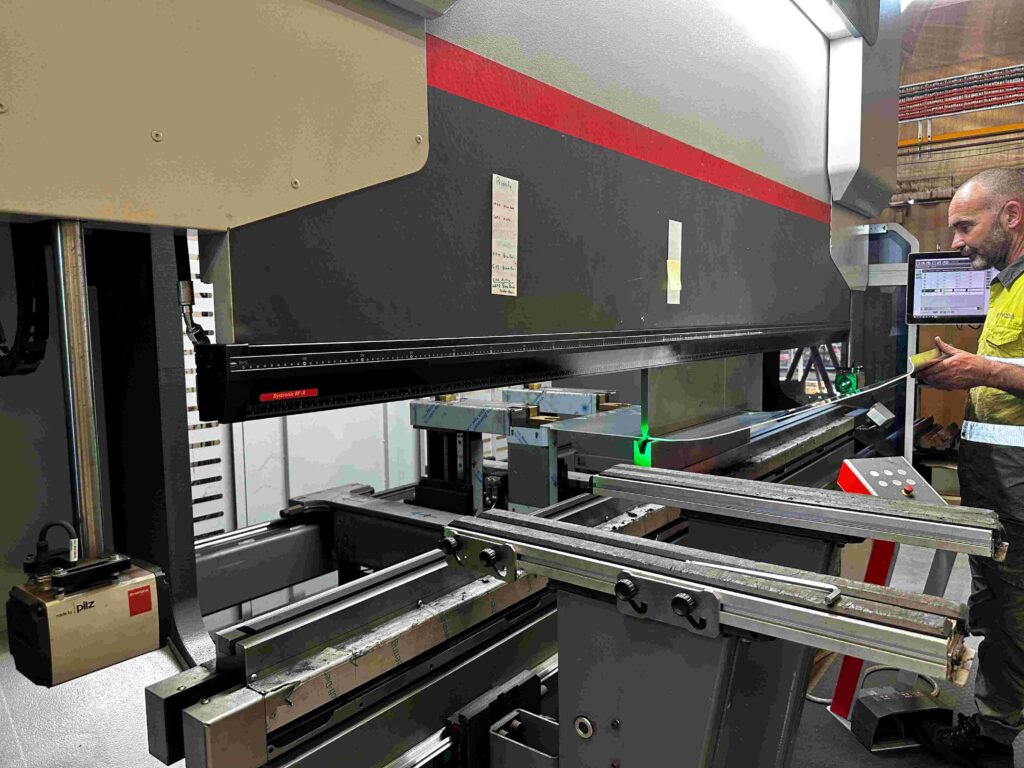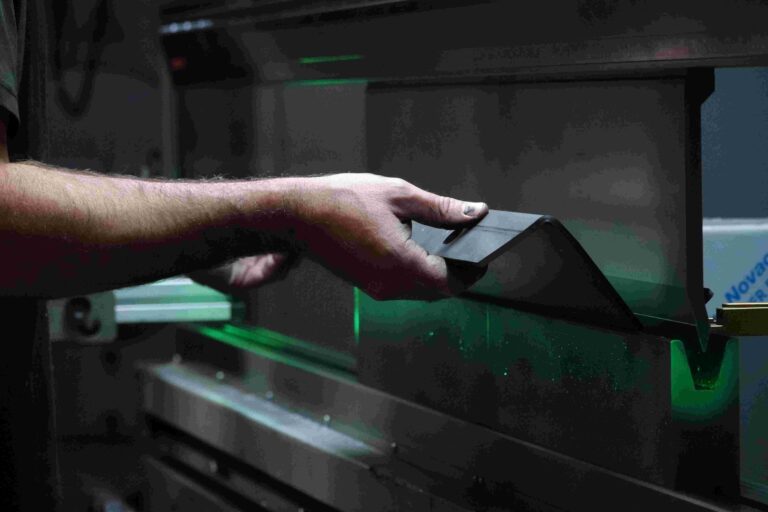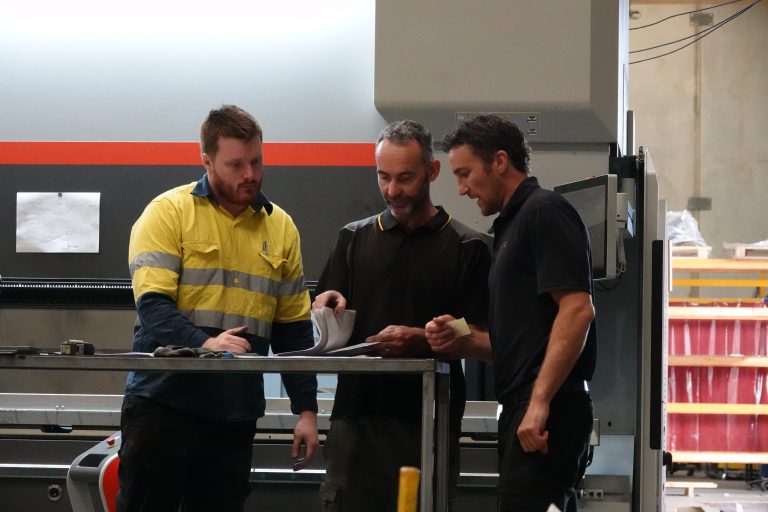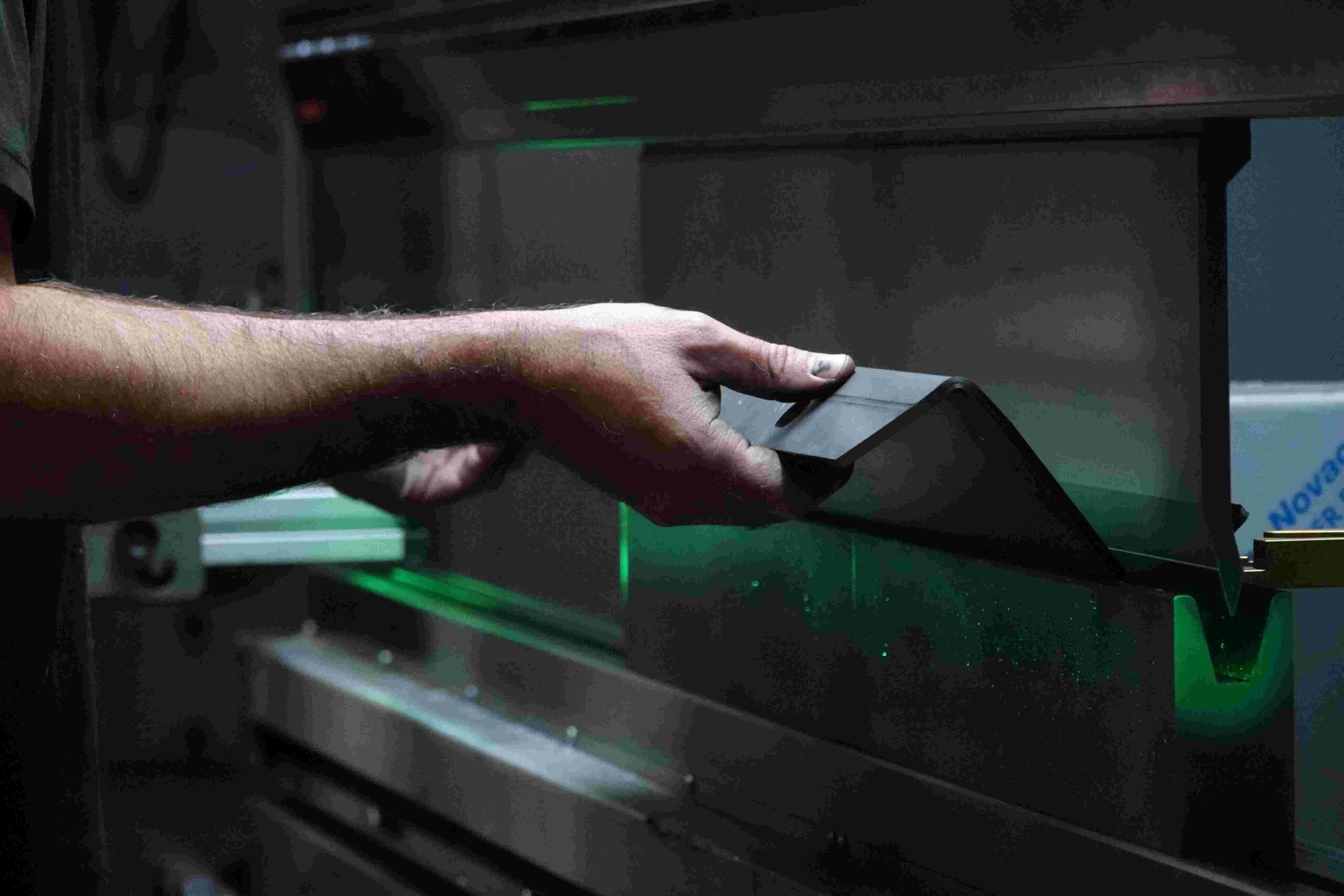Introduction To CNC Machines
CNC machines have revolutionised the world of metal fabrication, offering numerous benefits over traditional manual methods. From increased accuracy and precision to faster production times and greater flexibility in design, CNC machines have become an indispensable tool for manufacturers across a wide range of industries.
In this article, we will explore the many advantages of CNC machines for metal fabrication, delving into the specific benefits and applications of this innovative manufacturing process and more.

Definition of CNC machines
CNC machines is a manufacturing process that uses computer-controlled tools to precisely cut and shape metal parts. The acronym CNC stands for Computer Numerical Control, and the process involves programming a computer to control the movements of a machine tool such as a lathe, mill, or router. By inputting specific instructions into the machine’s computer, CNC machines can produce highly accurate and consistent metal parts with a level of precision that is difficult to achieve using traditional manual methods.
Brief Explanation of the Benefits of CNC machines
The benefits of using CNC machines for metal fabrication are numerous. First and foremost, CNC machines offer increased accuracy and precision, which is particularly important in industries where even small deviations can have serious consequences. Additionally, CNC machines are faster than manual methods, allowing for large quantities of parts to be produced efficiently. The flexibility of CNC machines also allows for the creation of complex shapes and designs that would be difficult or impossible to achieve using traditional methods. Finally, CNC machines can be cost-effective for large production runs, as the precision and consistency of the process can help reduce waste and increase efficiency.
Explanation of What the Article Will Cover
In this article, we will delve deeper into the benefits of using CNC machines for metal fabrication. We will explore each of the benefits discussed above in more detail, with real-world examples and case studies demonstrating the advantages of CNC machines in various industries. We will also discuss the various types of CNC machines available and their applications, as well as the software and programming required for effective CNC machines. Finally, we will discuss the future of CNC machines and its potential to revolutionise the field of metal fabrication.
Kanyana’s 4 Axis CNC Machine
Kanyana Engineering is expanding its services to include high-speed machining and turning, using advanced software to control device specifications based on 3D designs. Our team of engineers will program the equipment to optimise cutting time, surface finish, and final tolerances to meet clients’ specifications. With this new capability, Kanyana can offer a complete in-house solution for its existing and potential customers, ensuring quality and consistency while reducing lead times (that were previously determined by sub-contractors’ lead times) as well as costs.
4 Axis CNC is an important aspect of Kanyana’s new services. This technology involves four degrees of freedom, meaning either the tool or the workpiece can be moved or rotated along four axes—a clear upgrade from the 3 Axis CNC machining. With the 4th axis, Kanyana can manufacture more complex parts and increase the number of parts worked on at a time, providing an economic method for increasing production capabilities. This addition to our capabilities will increase productivity and create a solid foundation for Kanyana’s services.
This is an exciting new addition to Kanyan’s wide range of services, with our team already completing new jobs. By bringing high-speed machining in-house, we can control the quality and consistency of parts, eliminate reliance on sub-contractors, and broaden our capabilities for a range of industries.
Increased Efficiency

CNC machines offer significant advantages over traditional manual methods, particularly in terms of efficiency. By automating the manufacturing process, CNC machines can produce parts with greater accuracy, speed and consistency, resulting in reduced errors and waste, shorter production times, and higher accuracy and precision.
Reduction in Errors and Waste
One of the key advantages of CNC machines is its ability to reduce errors and waste in the manufacturing process. Unlike manual methods, CNC machines can produce parts with a high degree of accuracy and consistency, resulting in fewer errors and less material waste. Additionally, CNC machines can optimise the use of raw materials, reducing scrap and minimising waste.
Shorter Production Time
CNC machines also offer shorter production times than traditional manual methods. With the ability to operate around the clock, CNC machines can produce large quantities of parts quickly and efficiently, reducing the time required to complete a project. This increased efficiency can result in cost savings and increased profitability.
Higher Accuracy and Precision
CNC machines offer a level of accuracy and precision that is difficult to achieve using manual methods. By automating the manufacturing process, CNC machines can produce parts with a high degree of accuracy, resulting in parts that are consistent and identical. This precision is particularly important in industries such as aerospace and medical device manufacturing, where even small deviations can have serious consequences.
Flexibility
In addition to its efficiency advantages, CNC machines offer a high degree of flexibility, making it an ideal manufacturing process for producing complex metal parts with intricate designs.
Ability to Create Complex Designs
One of the key benefits of CNC machines is its ability to produce parts with complex designs and geometries. CNC machines can create parts with intricate shapes, contours, and surface finishes, allowing for the production of highly customised parts for a variety of applications. This level of precision and flexibility is particularly important in industries such as aerospace, automotive, and medical device manufacturing, where parts must meet strict performance and safety standards.
Easy to Make Changes to Designs
Another advantage of CNC machines is its flexibility when it comes to making changes to designs. Unlike traditional manual methods, which can be time-consuming and costly to modify, CNC machines can easily accommodate changes to the design specifications without requiring significant retooling or setup time. This flexibility allows for greater agility in the manufacturing process, enabling manufacturers to quickly adapt to changing market demands or design requirements.
Suitable for a Wide Range of Metals
CNC machines are also highly versatile when it comes to the range of metals it can work with. Whether it’s aluminium, steel, titanium, or any other metal, CNC machines can handle a wide range of materials with varying levels of hardness and density. This versatility allows manufacturers to produce a broad range of parts and components for diverse applications and industries.
Cost-Effectiveness

CNC machines offer several cost-effective benefits that make it a popular choice for metal fabrication. These benefits include lower labour costs, lower production costs, and better use of materials.
Lower Labour Costs
One of the primary cost advantages of CNC machines is that it requires less labour than traditional metal fabrication methods. With traditional methods, skilled machinists are required to operate manual machines and perform each step of the production process manually. In contrast, CNC machines can be programmed to perform tasks automatically, reducing the need for skilled labour.
Lower Production Costs
CNC machines can also reduce production costs by streamlining the production process. CNC machines can work faster than manual machines, producing more parts in less time. This means that CNC machines can reduce the cost per part and increase the overall production output. Additionally, CNC machines can be programmed to produce complex shapes and parts that would be difficult or impossible to produce manually, further reducing production costs.
Better Use of Materials
Another cost advantage of CNC machines is that it enables better use of materials. CNC machines can be programmed to optimise material usage, reducing waste and lowering material costs. Additionally, CNC machines can work with a wide range of materials, including metals, plastics, and composites. This versatility allows for more efficient use of materials and reduced material costs.
Improved Safety
CNC machines also offer several safety benefits that make it a preferable choice for metal fabrication. These benefits include a reduced risk of accidents and injuries, improved working conditions for operators, and improved tool and equipment safety.
Reduced Risk of Accidents and Injuries
One of the primary safety advantages of CNC machines is that it reduces the risk of accidents and injuries. CNC machines are fully automated and operate without human intervention, reducing the risk of accidents caused by operator error. Additionally, CNC machines can be programmed to perform tasks in a specific order and at specific speeds, further reducing the risk of accidents and injuries.
Improved Working Conditions for Operators
CNC machines also offer improved working conditions for operators. Operators are no longer required to perform physically demanding tasks such as heavy lifting, pushing, or pulling. Instead, they can focus on tasks that require mental focus and technical expertise, such as programming and monitoring the machines. This can improve the health and well-being of operators by reducing the risk of repetitive motion injuries and other physical strains associated with manual labour.
Improved Tool and Equipment Safety
CNC machines are equipped with advanced safety features that help to ensure safe operation. For example, most CNC machines have automatic shut-off systems that are triggered if a tool or machine malfunctions or encounters an obstacle. Additionally, CNC machines are designed with enclosed workspaces that prevent operators from coming into contact with moving parts or tools. This reduces the risk of injury and makes the operation of the machines safer overall.
At Kanyana Engineering, we specialise in CNC machines and metal fabrication, and our experienced team is dedicated to delivering high-quality products and exceptional customer service. If you’re looking for a reliable and efficient partner for your CNC machines and metal fabrication needs, look no further than Kanyana Engineering. Contact us today to discuss your requirements and learn how we can help you achieve your metal fabrication goals.

Graham Dawe is the Managing Director and Works Manager of Kanyana Engineering. With decades of experience in the metal fabrication industry, he is dedicated to keeping Kanyana at the forefront of the sector’s technological growth. Looking beyond the process itself to holistic, integrated CAD, CAM and MRP solutions, Graham believes Australian manufacturing has an enduring place on the global stage. In Kanyana Engineering’s state-of-the-art workshop in Mandurah, WA, Graham delivers an exceptional standard of work for commercial, industrial and government clients alike.

